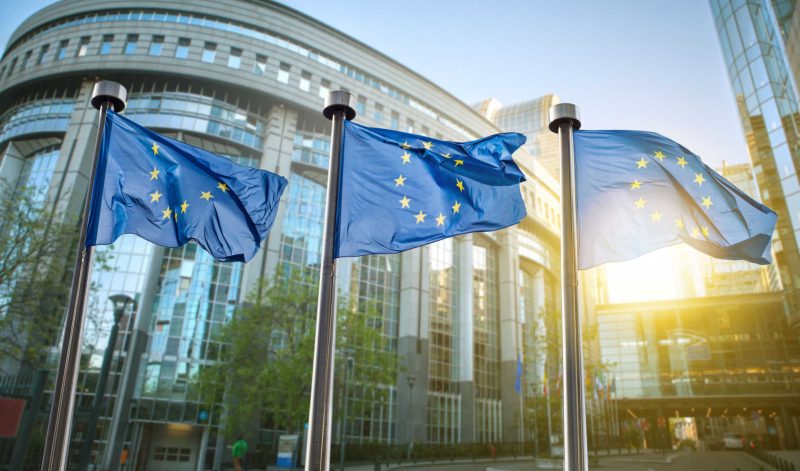PayPal appears unsure whether it should participate in the current crusade against online “disinformation” or not.
First it closed the PayPal accounts of The Daily Sceptic and the Free Speech Union, and even the personal account of their founder Toby Young, and then, two weeks later, it restored them. Then it announced that it would be docking $2,500 from anyone who uses its services in connection with “promoting misinformation” and then, two days later, it again reversed course and announced that this language was never intended to be included in its new Acceptable Use Policy (AUP).
It was not intended to be included? Well, where did it come from then?
Could the EU’s Code of Practice on Disinformation and its Digital Services Act (DSA), about which I wrote in my last Brownstone article, have something to do with PayPal’s skittish forays into “combatting disinformation?” Well, yes, they could, and you may rest assured that EU officials or representatives have already had a word with PayPal about them.
As discussed in my previous article, the Code requires signatories to censor what is deemed by the European Commission to be disinformation on pain of massive fines. The enforcement mechanism, i.e. the fines, has been established under the DSA.
PayPal is not, for the moment, a signatory of the Code. Furthermore, since it is neither a content platform nor a search engine – the potential channels of “disinformation” targeted in the DSA – it is obviously not in a position to censor per se. But the very first commitment in the “strengthened” Code of Practice unveiled by the European Commission last June is dedicated precisely to demonetization.
Unsurprisingly, given the nature of the business models of the most prominent signatories – Twitter, Meta/Facebook and Google/YouTube – this commitment and the six “measures” it comprises are mostly related to advertising practices.
But the “Guidance” that the Commission issued in May 2021, prior to the Code’s drafting, explicitly calls for “broadening” efforts to defund alleged purveyors of disinformation and contains the following highly pertinent recommendation:
Actions to defund disinformation should be broadened by the participation of players active in the online monetisation value chain, such as online e-payment services, e-commerce platforms and relevant crowd-funding/donation systems. (p. 8; emphasis added)
PayPal, the online e-payment service par excellence, was thus already in the Commission’s sights.
Somewhat illogically, given their own emphasis on advertising and the fact that an advertising-based revenue model and a donation or pay model would ordinarily be regarded as alternatives, the signatories of the “strengthened” Code thus pledged to
…exchange best practices and strengthen cooperation with relevant players, expanding to organisations active in the online monetisation value chain, such as online e-payment services, e-commerce platforms and relevant crowd-funding/donation systems…. (Commitment 3)
But the outreach to PayPal has not only occurred via third parties like the Code signatories.
In late May, shortly after the text of the Digital Services Act had been finalized – but before the European Parliament had even had the opportunity to vote on it! – an 8-member delegation from the parliament was dispatched to California to discuss the DSA and the related Digital Markets Act (DMA) with relevant “digital stakeholders.”
In addition to Code signatories Google and Meta, the “host list,” so to say – since the parliamentarians were to be the guests and they were inviting themselves! – also included PayPal. (See the delegation report here.)
Curiously, Twitter was not included among the companies and organizations to be visited, perhaps because of the turmoil unleashed by Elon Musk’s takeover bid. But, as touched upon in my prior article, Thierry Breton, the EU’s Internal Market Commissioner, had already paid a visit to Musk in Austin, Texas earlier in the month to have a word with him about the DSA.
No less than three of the delegation’s eight members – Alexandra Geese, Marion Walsmann and delegation head Andreas Schwab – were German, whereas Germans only account for around 13% of the total members of the parliament. This stark overrepresentation is telling, since Germany has undoubtedly been the prime mover behind the EU’s censorship drive, having already adopted its own online censorship law in 2017 with the express motivation of “combatting criminal fake news in social networks” (p. 1 of the legislative proposal in German here).
The German legislation, commonly known as “NetzDG” or the Network Enforcement Act, threatens platforms with fines of up to €50 million for hosting content that infringes any of a variety of German laws that restrict speech in ways that would be unthinkable and unconstitutional in the United States. It is also the source of the Twitter notices that many Twitter users will have received informing them that their account had been denounced by “a person from Germany.”
As noted above, PayPal is not presently a signatory of the Code of Practice on Disinformation. On July 14, however, just nine days after the passage of the DSA, the Commission issued a “Call for interest to become a Signatory” of the Code. The call is explicitly addressed to, among others, “e-payment services, e-commerce platforms, crowd-funding/donation systems.” The latter are identified as “providers whose services may be used to monetize disinformation.”
Evidently not satisfied merely with “deplatforming,” the Commission has thus made clear that the next frontier in its combat against “disinformation” is attempting to defund dissenters who, despite their discrimination by or banishment from the major online platforms, have managed to preserve a place in the online discussion thanks to platforms of their own.
PayPal, moreover, will know that the “exclusive” – in effect, dictatorial – powers that the DSA confers on the European Commission include the power to designate the “very large” online platforms that are susceptible to incurring the massive DSA fines of up to 6% of global turnover. PayPal will easily satisfy the “very large” size criterion of having at least 45 million users in the EU, but it is obviously not a content platform.
Nonetheless, this appears not to be so obvious to the European Commission. For the Commission press release on the call for signatories treats it precisely…as a content platform! Thus, the press release refers to “providers of e-payment services, e-commerce platforms, crowd-funding/donation systems, which may be used to spread disinformation.” Huh?
In the meanwhile, on September 1, the EU has opened a specially-dedicated office or “embassy” in San Francisco to conduct what it itself describes as “digital diplomacy” with US tech firms. The “ambassador,” Commission official Gerard de Graaf, is reportedly one of the drafters of the DSA. Perhaps he will be able to explain the intricacies of the DSA to PayPal – or even already has. PayPal headquarters are, after all, just a stone’s throw away in Palo Alto.
In any case, PayPal has been put on notice, and, with it, so too have dissident websites that depend on user support for their survival. Ignore the EU at your peril.
Join the conversation:

Published under a Creative Commons Attribution 4.0 International License
For reprints, please set the canonical link back to the original Brownstone Institute Article and Author.









